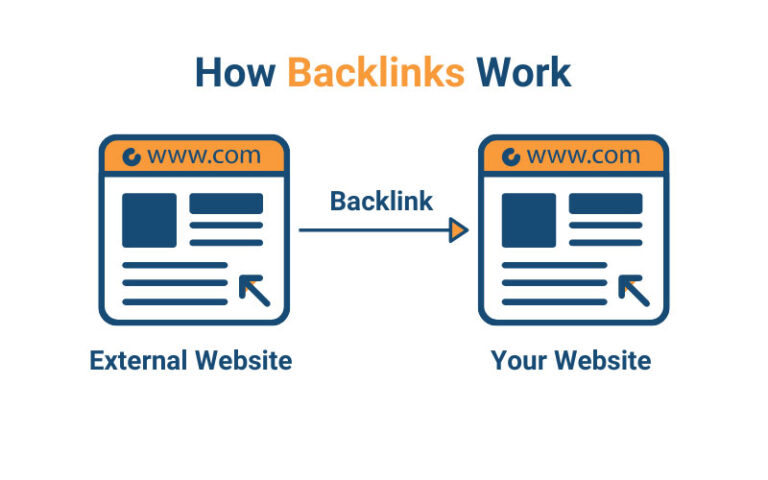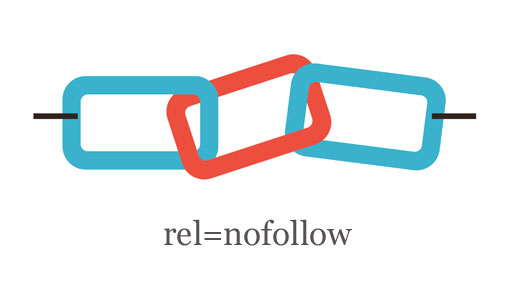What is Off-Page SEO
Off-page SEO is one of the most crucial aspects of SEO. It refers to all of the measures you can take outside of your website to improve your rank in the search engines. Several different factors go into off-page SEO, and it can be a complex process.
In this blog post, we will discuss what off-page SEO is and some of the most important factors that go into it.

What is off-page SEO with examples?
Off-page SEO is the process that is required to optimize your website for search engines. This can be done by improving your website’s content, design, and user experience. You can also improve your off-page SEO by building links to your website from other websites.
Some examples of off-page SEO include:
- Improving your website’s content
- Enhancing your website’s design
- Improving your website’s user experience
- Building links to your website from other websites
Why do you need off-page SEO?
Off-page SEO is important because it helps improve your website’s rank in the search engines. It does this by increasing your website’s exposure and helping you build high-quality links.
Additionally, off-page SEO can help improve your brand reputation. If you want to improve your website’s ranking, it is important to focus on all factors involved in off-page SEO. By doing so, you will stay ahead of the competition and achieve better results.
You will have a harder time ranking for competitive search phrases if you don’t use off-page SEO.
Consider how important it is to have a high-authority site when thinking about off-page SEO. Your site won’t outrank those with higher authority if it doesn’t have this. And in general, content from websites with more authority ranks higher than sites with less authority.
Based on that, links are one of Google’s top three ranking factors; an off-page strategy that doesn’t include link creation is unlikely to produce the desired effects.
To believe that you can only concentrate on links is a mistake. There are other off-page SEO strategies and tactics that you should be utilizing — they will not merely aid in the success of your SEO efforts but also help build your brand.
What is off-page SEO and on-page SEO?
Off-page SEO is optimizing a website to improve its rank in the search engines. This can be done by increasing the website’s exposure and building high-quality links.
On the other hand, on-page SEO is the process of optimizing a website’s content and structure so that it ranks higher in search engines. On-page SEO includes optimizing title tags, meta descriptions, header tags, images, and other elements on a page.
When it comes to off-page SEO vs. on-page SEO, off-page SEO is more important. This is because it helps improve your website’s rank in the search engines. On-page SEO can help you rank higher for specific keywords, but it will not have as much of an impact on your overall ranking as off-page SEO.
If you’re only focusing on on-page SEO, you’re missing out on a lot of potential traffic. Off-page SEO should be a part of your overall marketing strategy to see better results.
How do you do off-page SEO?
Here is how you can do your off-page SEO:
1. Link Building
The process of link building is acquiring links from other websites. This can be done by submitting your website to directories, publishing guest posts on other websites, and participating in social media communities. Links are one of the most important factors that go into off-page SEO. The more links you have to your website, the higher your rank in the search engines.
The goal of off-page SEO is to increase the authority of your company. Authority websites may help you position your website as an authority by providing a vote of confidence from one site to another.
The #1 aim of link building should be to obtain high-quality links from authoritative sites. You should prioritize quality over quantity at all times. What is the difference between your site and your competition regarding the link gap?
2. Content Marketing
When we consider content marketing, many think only of it as an on-page SEO strategy — the production and distribution of material hosted on our website.
However, taking a broader view of things, content marketing includes both on-page and off-page strategies. Creating and publishing high-quality material on your website is only one aspect of content marketing; any text you produce and post online qualifies as part of it.
If you submit a guest post, you’re engaging in content marketing. Publish an infographic that is linked to a top-tier newspaper? That’s content marketing.
The appeal of using content marketing as a strategy is that producing excellent, engaging materials makes it easier to concentrate on off-page elements. This, generally, comes from the promotion of the content you’re creating – releasing great, compelling stuff that others want to talk about and link to.
3. Guest Blogging
Guest blogging is one of the best ways to get high-quality links to your website. When you submit a guest post to another website, you provide that website with valuable content. In return, the website will likely link back to your website.
Guest blogging is a great way to build relationships with other websites and increase your online visibility. It is also a great way to gain exposure for your brand.
4. Social Media Marketing
Social media marketing is the process of promoting your company on social media platforms such as Facebook, Twitter, and LinkedIn. It is important for two reasons: first, it helps you connect with potential customers; and second, it helps you improve your rank in the search engines.
Social media marketing aims to create a connection with potential customers. You can connect with potential customers and persuade them to become customers by providing valuable content.
The goal of social media marketing is also to improve your rank in search engines. The more active you are on social media, the higher your rank in the search engines.
5. Directory Submission
Directory submission is the process of submitting your website to directories. There are many directories online, and submitting your website to as many of them as possible will help increase your ranking in the search engines.
When you submit your website to a directory, you provide that directory with valuable information about your company. In return, the directory will likely link back to your website.
There are many benefits of directory submission, but the most important benefit is that it helps you improve your rank in the search engines.
6. Add an RSS Feed Subscription Box
An RSS feed subscription box is a great way to increase traffic to your website. An RSS feed subscription box allows visitors to subscribe to your RSS feed and receive updates when you publish new content.
When you add an RSS feed subscription box to your website, you provide your visitors with an easy way to stay up-to-date with your latest content. In return, they will likely visit your website often to read your latest posts.
The goal of adding an RSS feed subscription box is twofold: first, it helps you connect with potential customers; and second, it helps you improve your rank in the search engines.
7. Forums posting
Forum posting is the process of submitting your company to forums. There are many forums online, and submitting your website to as many of them as possible will help increase your ranking in the search engines.
When you submit your website to a forum, you provide that forum with valuable information about your company. In return, the forum will likely link back to your website.
There are many benefits of Forum posting, but the most important benefit is that it helps you improve your rank in the search engines.
8. Press Release Distribution
Press release distribution is distributing press releases to news outlets and journalists. When you distribute a press release, you provide reporters with valuable information about your company. In return, they will likely write a story about your company.
Press release distribution is an important way to promote your company to the media. By distributing a press release, you provide reporters with valuable information about your company. In return, they will likely write a story about your company.
The goal of press release distribution is to get media coverage for your company. By distributing a press release, you allow reporters to write a story about your company.
9. Commenting is still Hot
Blog commenting is the process of leaving comments on blogs. When you leave a comment on a blog, you provide that blog with valuable feedback. In return, the blog will likely link back to your website.
Blog commenting is an important way to connect with potential customers. By leaving comments on blogs, you provide valuable feedback to the blog owner. In return, they will likely link back to your website.
10. Influencer Outreach
Influencer outreach is the process of reaching out to influencers. Influencers are people with a large following on social media. When you reach out to an influencer, you ask them to promote your product or service.
Reaching out to influencers is important to promote your product or service. By reaching out to influencers, you ask them to promote your product or service. In return, they will likely write a review or blog post about your company.
11. Broken link Building
Broken link building is the process of finding and fixing broken links. When you find a broken link, you provide that website with valuable information. In return, they will likely link back to your website.
Finding and fixing broken links is an important way to improve your rank in search engines. By finding and fixing broken links, you provide websites with valuable information. In return, they will likely link back to your website.
12. PR
PR and SEO were regarded as two separate marketing specialties for a long time, but in recent years, the distinction has blurred.
Many SEOs have realized that Paid Social is no longer the most effective technique for achieving authority links at scale. They are switching to Interactive Digital PR as their preferred link-building approach. You may use PR strategies to promote a great narrative and corresponding linkable assets, and you may earn a lot of backlinks as a result.
13. Local listing and Citations
Local listing and citations are the processes of submitting your business to online directories. When you submit your business to an online directory, you provide that directory with valuable information about your company. In return, the directory will likely link back to your website.
A citation is any mention of your business on the internet without linking back to your website. Citations can be in the form of directory listings, social media mentions, and more.
Submitting your business to online directories is crucial to promoting your company. By submitting your business to online directories, you provide them with valuable information about your company. In return, they will likely link back to your website.
14. Events
Within marketing methods, events are making a resurgence, and believe it or not, and they can aid in your off-page SEO strategy.
Now more than ever, there are many internet events such as webinars, and they might go a long way to help you develop your brand.
It is also possible that free, targeted advertising from a value-added network will give you more business in the long run. This can help engage your audience and generate a genuine buzz about your brand, driving social interaction and even backlinks.
15. Podcasts
Another great marketing method that can help with your off-page SEO is podcasts. A podcast is a radio show that is available online.
When you create a podcast, you provide valuable content to your audience. In return, they will likely listen to your podcast and share it with their friends.
Podcasting is an important way to connect with your audience. Creating a podcast provides valuable content to your audience. In return, they will likely listen to your podcast and share it with their friends. Podcasting is also a great way to build authority in your industry.
These are just some of the many factors that go into off-page SEO. If you want to improve your rank in the search engines, it is important to focus on these factors. Additionally, it is important to keep up with the latest trends in off-page SEO so that you can stay ahead of the competition.
What are some common mistakes with off-page SEO?
There are several different mistakes that people make regarding off-page SEO. Some of the most common ones include:
Not enough focus on quality: One of the most common mistakes is to focus on quantity over quality. This can lead to many low-quality and spammy backlinks, which can hurt your website’s ranking.
Not diversifying your link sources: Another mistake is to get all of your links from the same source. This can lead to your website being penalized by search engines.
Not keeping up with the latest trends: As mentioned above, it is important to keep up with the latest trends in off-page SEO. Otherwise, you may find yourself falling behind the competition.
Why should you focus on Off-Page SEO?
Off-page SEO is important because it helps improve your website’s rank in the search engines. It does this by increasing your website’s exposure and helping you build high-quality links. Additionally, off-page SEO can help improve your brand reputation. If you want to improve your website’s ranking, it is important to focus on all factors involved in off-page SEO. By doing so, you will stay ahead of the competition and achieve better results.
What are some other benefits of off-page SEO?
In addition to improving your website’s rank in the search engines, off-page SEO can also provide several other benefits. These include:
Increasing your website’s exposure: Off-page SEO can help increase your website’s exposure, leading to more visitors and customers.
Building high-quality links: Off-page SEO can help you build high-quality links, which can improve your website’s ranking and reputation.
Improving your brand reputation: Off-page SEO can also help improve your brand reputation, leading to more sales and revenue.
Increase Domain authority: Domain authority measures how well your website will rank in the search engines. The higher your domain authority, the better your website will rank. Off-page SEO can help increase your domain authority.
Final Thoughts
Off-page SEO is an important part of any marketing strategy. It helps improve your website’s rank in the search engines and can also help to improve your brand reputation. Additionally, off-page SEO should be used with on-page SEO for the best results. Focusing on only one or the other will not produce the desired effects.
If you’re looking for better online visibility and more traffic, you need to focus on off-page SEO. It is one of the most important factors for ranking a website in Google. By using off-page SEO tactics, you can stay ahead of the competition and achieve better results.
Sources & External Links
Pages that search results are linking to (excluding internal links):
- What’s Better – On-page SEO or Link-building?
- 8 Can’t-Miss OFF-PAGE SEO Strategies to Build Your Online Reputation
- Official: Google Now Lets One Domain Dominate Search Results
- Now we know: Here are Google’s top 3 search ranking factors
- 19 Reasons You Should Include Visual Content in Your Marketing [Data]
- 16 Stats That Prove the Importance of Local SEO
- Penguin is now part of our core algorithm | Google Search Central Blog | Google Developers
- What site owners should know about Google’s core updates
A Complete Guide To On & Off Page Local SEO Content - Search Engine Journal
March 31, 2022 - Search Engine JournalA Complete Guide To On & Off Page Local SEO Content Search Engine Journal...
Edkent Media Launches SEO Services for Tech Startups in Toronto - Benzinga - Benzinga
April 6, 2022 - BenzingaEdkent Media Launches SEO Services for Tech Startups in Toronto - Benzinga Benzinga...




